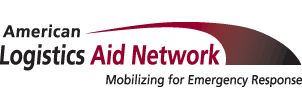[vc_row][vc_column][vc_column_text]By now, we’re all familiar with the guidelines for washing our hands and not touching our faces. But as we enter a new phase of Coronavirus mitigation, it’s time to turn our attention to several additional (and altruistic) best practices we might want to consider adopting. Here’s hoping they’ll enable all of us to do a better job of protecting everything from our health to our supply chains.
Hunker down. The best way to be a part of the solution is to make sure you’re not part of the problem. While self-quarantining, social distancing and other preventive practices may not be fun or convenient, they are essential for everyone’s continued health and safety.
Eat and shop for only what you and your family need in the short term – and please don’t hoard. Panic buying hurts the supply chain by causing unnecessary shortages and stockouts and creates additional strain on a supply chain that is already working overtime to address pandemic-related challenges.
Let people know if you’re willing to shop for them. With many at-risk groups being advised to steer clear of stores and other public places, your willingness to purchase essential items and drop them off on these people’s doorstep could be a life-saver.
Purchase a gift certificate from a local restaurant or retailer. Better yet, purchase several. That business (which is probably experiencing a downturn) can use the cash flow to sustain its business now, and you can enjoy using the gift certificate – or give it to someone as a gift – later.
Offer to share some of your supplies. If you’ve already purchased a lot more pet food, soap, toilet paper, masks or other supplies than you need in the immediate future, consider sharing at least a few of these items with a friend or neighbor to hold them over until the next shipment of these items arrives in their local area.
Thank one of the many professionals who is still required to be on site and on the job, especially truck drivers, warehousing professionals, grocery store employees, janitors, postal workers and of course, health and safety professionals. They’re all providing hugely important services and putting themselves at increased risk in order to make things better and easier for YOU during this crisis.
Help people remember to practice informed compassion. While most of us would probably never refuse to share our bathrooms and other amenities with doctors, nurses or first responders who asked, some businesses ARE refusing to let professionals like truckers have access to their facilities because they’re concerned about Coronavirus contagion. Considering how long and how far these individuals have to drive – and how important their deliveries are – this is a worst practice that needs to stop before it gets in the way of supply chain continuity.
Expand your mindset. Although it’s tempting to think all about the Coronavirus all of the time, there are still a lot of other disasters that also need our attention – and many disaster survivors who still need our help. So if you’re looking for some healthy distraction, try Googling something like “Tennessee Tornado relief” “Puerto Rico earthquake relief” or “Hurricane Dorian relief.” Then make plans to help that cause in a meaningful way. It’ll take your mind off your current circumstances for a while and help someone else in the process.
Reach out frequently to someone who has been advised not to leave their home. Chances are good that they may already be feeling lonely, and they’ll enjoy hearing a friendly voice.
Support a local food bank or other community non-profit . With many people living paycheck to paycheck – and some employers unable to pay them while their operations are closed– there could be considerable additional demand for these humanitarian organizations’ services. Even a few spare dollars can make a hugely positive difference.[/vc_column_text][/vc_column][/vc_row]
